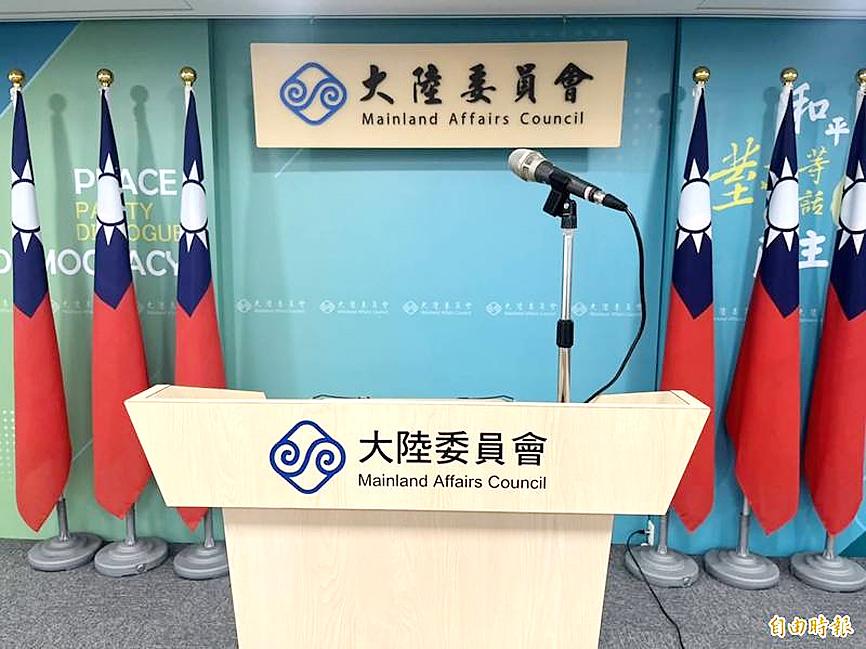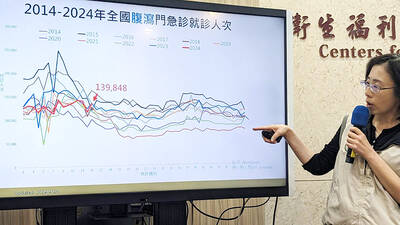China is pushing for Hong Kong’s unification and “cleansing” its civil society, the Mainland Affairs Council (MAC) said in a report published on Monday
The report analyzed the situation in Hong Kong as China last month celebrated the 25th anniversary of the handover of the territory’s sovereignty from British to Chinese rule.
The promulgation of Hong Kong’s National Security Law more than two years ago led to an exodus of residents as the territory tumbled in a number of international freedom indices, the report said.

File photo
There were 7,403,000 residents in Hong Kong at the end of last year, a fall of 23,600 residents from 2020, it said.
The law suppresses the freedoms and human rights of Hong Kongers, as seen by the increase in prosecution of student protesters, political opposition party members, democracy advocates, trade unions and civil groups, the report said, adding that at least 60 civic groups were forced to disband or suspend operations in the past year.
When Chinese President Xi Jinping (習近平) last month visited the territory to celebrate the anniversary of the handover, he emphasized Beijing’s control of the territory as a defining feature of the “one country, two systems” model, the report said.
Beijing’s influence over Hong Kong’s electoral system requires elected officials to be “patriots,” a deviation from the territory’s Basic Law, which stipulates a “Hong Kong governed by Hong Kongers,” the report said.
The Hong Kong Legislative Council is gradually coming under the control of the Chinese National People’s Congress, prompting fears that controversial laws could easily be passed, it said.
There have been no developments in official exchanges between Taiwan and Hong Kong due to tensions across the Taiwan Strait, it said, adding that commercial and people-to-people exchanges remain strong.
In a show of support to Hong Kongers, Taiwan amended its Regulations for Hong Kong and Macau Residents Studying in Taiwan (香港澳門居民來台就學辦法), which now permits high schools and vocational schools to admit students from the two territories, it said.
The Regulations Governing Residency or Permanent Residency for People of the Hong Kong Area and the Macau Area (香港澳門居民進入臺灣地區及居留定居許可辦法) was also revised to allow jobseekers from Hong Kong and Macau to extend their visas for up to a year, it added.
Taiwan has also enhanced its risk management system as Beijing tightens its control over Hong Kong, it said.
Amendments to the National Security Act (國家安全法) were passed to prevent Taiwanese from helping foreign countries or hostile foreign forces to obtain, use or leak business secrets involving “core” technologies through theft, cheating, coercion or reproduction without authorization, it said, adding that the Act Governing Relations Between the People of the Taiwan Area and the Mainland Area (臺灣地區與大陸地區人民關係條例) was amended to prevent Chinese-funded businesses from using Taiwanese companies as vessels to invest in Taiwan.
The government would continue to monitor the situation in Hong Kong closely and would take action against any national security or human rights threats to safeguard the well-being and sovereignty of Taiwan, it said.

FLU SEASON: Twenty-six severe cases were reported from Tuesday last week to Monday, including a seven-year-old girl diagnosed with influenza-associated encephalopathy Nearly 140,000 people sought medical assistance for diarrhea last week, the Centers for Disease Control (CDC) said on Tuesday. From April 7 to Saturday last week, 139,848 people sought medical help for diarrhea-related illness, a 15.7 percent increase from last week’s 120,868 reports, CDC Epidemic Intelligence Center Deputy Director Lee Chia-lin (李佳琳) said. The number of people who reported diarrhea-related illness last week was the fourth highest in the same time period over the past decade, Lee said. Over the past four weeks, 203 mass illness cases had been reported, nearly four times higher than the 54 cases documented in the same period

A group of Taiwanese-American and Tibetan-American students at Harvard University on Saturday disrupted Chinese Ambassador to the US Xie Feng’s (謝鋒) speech at the school, accusing him of being responsible for numerous human rights violations. Four students — two Taiwanese Americans and two from Tibet — held up banners inside a conference hall where Xie was delivering a speech at the opening ceremony of the Harvard Kennedy School China Conference 2024. In a video clip provided by the Coalition of Students Resisting the CCP (Chinese Communist Party), Taiwanese-American Cosette Wu (吳亭樺) and Tibetan-American Tsering Yangchen are seen holding banners that together read:

Heat advisories were in effect for nine administrative regions yesterday afternoon as warm southwesterly winds pushed temperatures above 38°C in parts of southern Taiwan, the Central Weather Administration (CWA) said. As of 3:30pm yesterday, Tainan’s Yujing District (玉井) had recorded the day’s highest temperature of 39.7°C, though the measurement will not be included in Taiwan’s official heat records since Yujing is an automatic rather than manually operated weather station, the CWA said. Highs recorded in other areas were 38.7°C in Kaohsiung’s Neimen District (內門), 38.2°C in Chiayi City and 38.1°C in Pingtung’s Sandimen Township (三地門), CWA data showed. The spell of scorching

UNAWARE: Many people sit for long hours every day and eat unhealthy foods, putting them at greater risk of developing one of the ‘three highs,’ an expert said More than 30 percent of adults aged 40 or older who underwent a government-funded health exam were unaware they had at least one of the “three highs” — high blood pressure, high blood lipids or high blood sugar, the Health Promotion Administration (HPA) said yesterday. Among adults aged 40 or older who said they did not have any of the “three highs” before taking the health exam, more than 30 percent were found to have at least one of them, Adult Preventive Health Examination Service data from 2022 showed. People with long-term medical conditions such as hypertension or diabetes usually do not